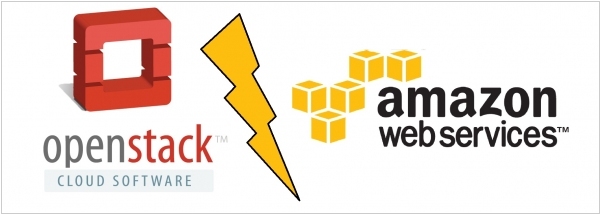Amazon - gets closer to Windows, OpenStack - closer to Linux
March 01, 2012 | Author: Michael Stromann

The situation on the cloud (IaaS) platform market more and more reminds us the history of the desktop operating systems (Windows and Linux). On the one hand - open and standard-based platform OpenStack. It's standards this week were supported by two more giants - IBM and Ericsson, that joined the OpenStack alliance. Before them the alliance included Rackspace, Citrix, Intel, AMD, Cisco, Dell, HP. On the other hand - proprietary but already very popular platform Amazon Web Services (AWS). AWS gained it's popularity as a simple and open platform which allows to restore Linux or Windows server and scale it depending on the load. It was relatively easy to move applications of AWS. But as Amazon adds new features to AWS, it lockes clients and partners more and more in its golden cage.
Since the beginning of the year AWS added two new services: DynamoDB (full-featured NoSQL database) and Simple Workflow Services (engine for business process automation, that can engage local apps as well as app hosted on AWS). Of course, these are useful things, but using them, developers make it very difficult to move applications from AWS to a private cloud or to another platform. In the same way Microsoft was adding to Windows office suite, browser, mail client.
Of course, nobody likes to be locked to one provider. But the system developed by the open community without owner - has its own drawbacks. For example, its development is slow. After 2 years since founding, OpenStack is still in the testing stage. The official launch is planned only for 3 or 4 quarter of this year. After this launch, in theory, many Amazon-like IaaS-services and private clouds will appear. And they will enable easily move applications from one provider to another.
For the complete compliance with the Desktop OS world, the cloud platform market needs a system like Mac - a niche platform that will be waiting for its time and then explode. Ironically, the most likely contender for this role is Microsoft's Windows Azure. By the way, in the near future Microsoft is going to add Linux-server support to Azure.
See also: Top 10 Public Cloud Platforms


